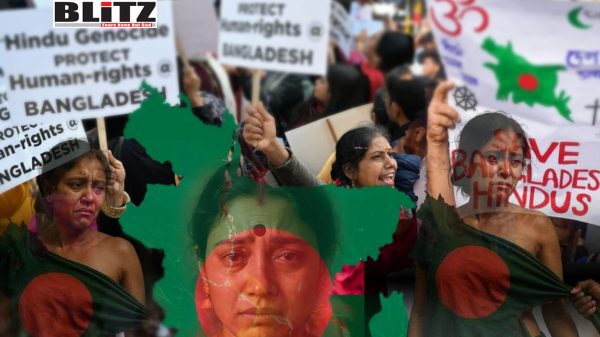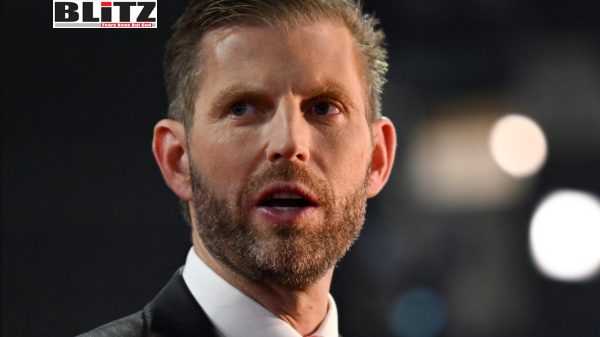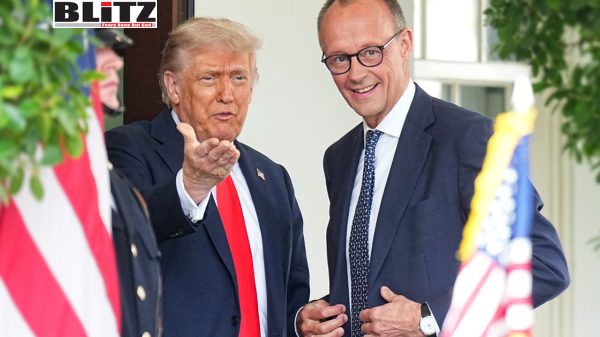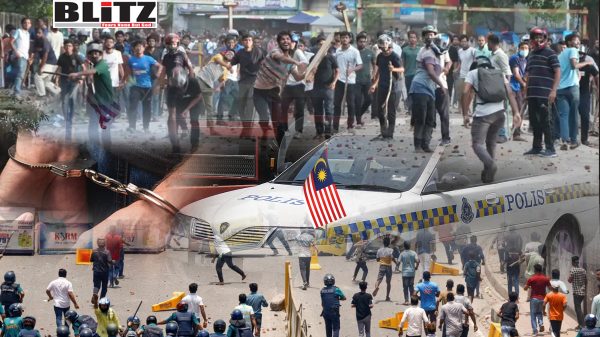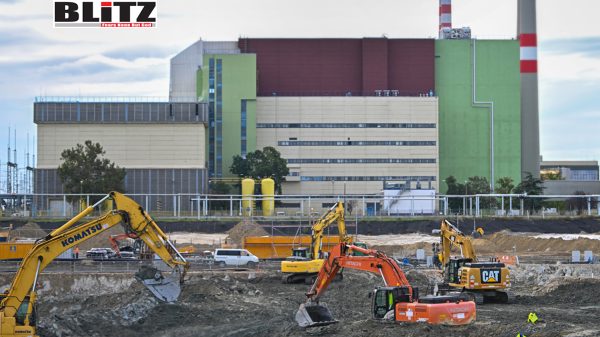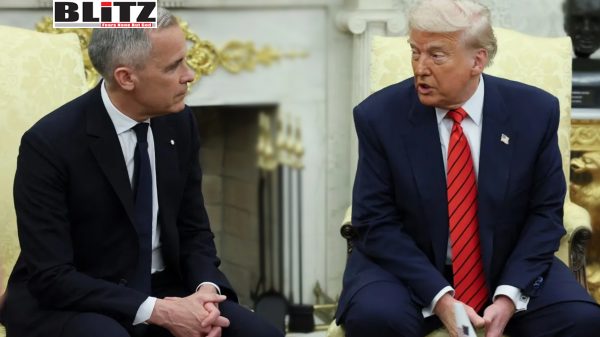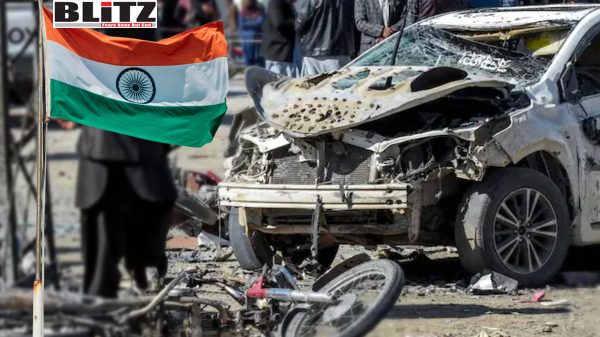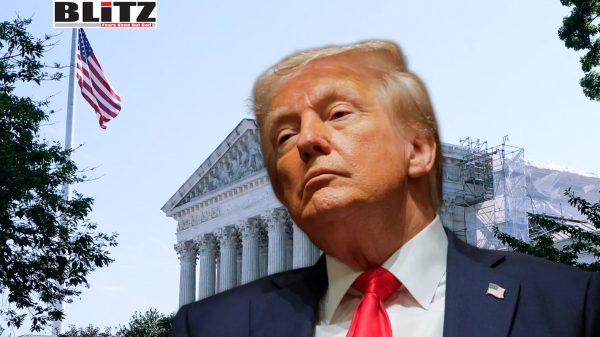Newly-elected Bangladesh government may face oxymoronic hegemon from the US and UK
- Update Time : Thursday, January 11, 2024

Although in January 7 general elections, Awami League under the leadership of Sheikh Hasina bagged 222 seats out of 300, there is clear indications of the newly-elected government facing oxymoronic hegemon from the United States and its Western allies, including Britain. If Prime Minister Sheikh Hasina and her administration fail to properly assess and prepare to counter the anticipated extended pressure from the West, the country may even face severe challenges despite the fact of enjoying univocal support from Beijing, New Delhi, Moscow in particular as well as several African, Asian and Middle Eastern countries.
Within hours of the January 7 general election, the US Department of State in a statement said, “The United States supports the people of Bangladesh and their aspirations for democracy, freedom of peaceful assembly, and freedom of expression. The United States notes the Awami League party won a majority of seats in the January 7, 2024 parliamentary elections. The United States remains concerned by the arrests of thousands of political opposition members and by reports of irregularities on election day. The United States shares the view with other observers that these elections were not free or fair and we regret that not all parties participated”.
In the same statement Washington said, “The United States condemns violence that took place during elections and in the months leading up to it. We encourage the Government of Bangladesh to credibly investigate reports of violence and to hold perpetrators accountable. We also urge all political parties to reject violence”.
Although it was anticipated that Washington may forces other EU nations to echo the notion that already has been expressed by the United Kingdom, EU nations did not step into it. Instead it issued a statement saying “European Union takes note of the outcome of the Parliamentary elections, which were held in Bangladesh last Sunday [January 7] and reiterates that the long-term EU-Bangladesh partnership is underpinned by the values of democracy, human rights and the rule of law”.
Most importantly, EU did not repeated BNP-Jamaat’s propaganda stating January 7 election was not free and fair.
But unfortunately, Biden administration has already started pushing forward its fresher agenda with the ulterior agenda of planting Islamists, jihadists and Caliphate-mongers into power – if necessary, through an undemocratic process and turn Bangladesh into its colony under the garb of a neo-Taliban state.
It may also be mentioned here that, whenever Washington’s scary intelligence establishments set up a blueprint of toppling any targeted government or regime in a foreign country, they first of all join hands with several local elements – including political parties, civil society, think tanks, media and others. Once they fail to topple the government through street protests, anarchism, and terrorist acts, they immediately switch to alternative options of staging coup d’état by funding and utilizing mercenaries and even terrorist and jihadist groups.
If we carefully scrutinize the above statement, it will be proved – the Biden administration has taken an oxymoronic policy towards Bangladesh. Or maybe even worse. Why? Here is my assessment.
On November 3, 2008 in a classified cable to the Department of State from former ambassador James Moriarty, it was said that “Tarique Rahman, the notorious and widely feared son of former Prime Minister Khaleda Zia… is a symbol of kleptocratic government and violent politics in Bangladesh. His flagrant disregard for the rule of law has provided potent ground for terrorists to gain a foothold in Bangladesh while also exacerbating poverty and weakening democratic institutions. In short, much of what is wrong in Bangladesh can be blamed on Tarique and his cronies”.
This very same Tarique Rahman, who is a convicted terrorist with two life sentences is the current leader of the Bangladesh Nationalist Party (BNP) and currently instigating and instructing violent political activities in Bangladesh, through means of radical Islamist parties like the Jamaat-e-Islam (JeI).
The US Secretary of State has asked the government of Bangladesh to credibly investigate the “reports of violence” but at the same time has condemned the “arrest of political opposition members”. This certainly is an oxymoronic piece of advice.
The BNP has staged multiple demonstrations in Bangladesh before without any opposition from the government, but in the recent times when violence has resurfaced, the government was compelled to take legal actions – arrest those involved in terrorist and subversive acts for the sake of national security. Now, is the Biden Admin advising to find innocent “scapegoats” for crimes the BNP and its allies are committing, exonerating Tarique Rahman and other members of the BNP who are without any reasonable doubt, and even based on past evidence, directing these violent activities?
The US State Department’s statement also said “foreign observers” have maintained that the election in Bangladesh was not free and fair. This is an unsubstantiated claim – if not totally ridiculous. Which “foreign observers” are they referring to? What are the metrics for “free” and “fair” for the US? We can definitely ask this question because immediately after the election, a large number of election observers from the United States as well as other nations have categorically said, the January 7 general election was free and fair. Even none of the anti-government and critical media outlets in Bangladesh have made any such claims stating the election was not free and fair. Instead, they have been focusing on low voter turnout – which is slightly above forty percent.
Joining a discussion on Indian TV channel NewsX, former diplomat Veena Sikri and others have already said, though voter turnout in the January 7 election was “slightly low”, Bangladesh Election Commission has succeeded in holding a free and fair election.
Then why is Washington not accepting this reality? In the above-mentioned discussion, as well in another discussion in the same TV channel, I have clearly said, on January 7, 2024, Bangladesh has avoided an international conspiracy of turning the country into a neo-Taliban state.
Subsequently, on CNBC18, I have explained why January 7 election was crucial for Bangladesh, although it is well-anticipated, those who have been conspiring to turn Bangladesh into a neo-Taliban state won’t stop, while BNP and its ideological ally Jamaat would not intensify its activities by mobilizing lobbyists and PR agencies in the West with the aim of a massive media assault targeting the January 7 general election, Prime Minister Sheikh Hasina and Bangladesh. Unfortunately, the Bangladesh government is not prepared to counter such acts as they most possibly fail realizing the grave consequence of propaganda on international media outlets alongside social media. If they show such lethargy onwards – BNP and its cohorts shall succeed in putting the government into an unimaginable situation – if not immediately, within the next few months.
Meanwhile, in addition to running propaganda and lobbyist activities with the agenda of delegitimizing the January 7 election, BNP and its cronies – including several anti-Awami League media outlets already are talking about the 12th parliament having no opposition, as Jatiya Party, which was until January 7 perceived as the opposition in the parliament failed to bag required number of seats to once again retain the position of the mail opposition in the parliament.
It may be mentioned here that, Jatiya Party was created in the incubator of military dictator Gen Hussain Muhammad Ershad, which was seen as the ruling party during 9-years military rule of Ershad. Onwards, this ultra-Islamist party mostly remains a back-bencher in the parliament. But it’s luck clicked when BNP boycotted the 2014 general elections, where Jatiya Party emerged as the main opposition in the parliament while at the same time, its MPs joined the cabinet and even Gen Ershad was appointed “Special Envoy” to the Prime Minister with the status of a cabinet minister. Meaning, during 2013-2018, Jatiya Party was not a real opposition in the parliament as it was part of the government. But at that time, none of the Western nations, including the United States, had raised any objection.
During the 2018 general election, Jatiya Party again emerged as the main opposition in the parliament, despite the fact, BNP had participated in that election. But the result of that election, which has been marred with extreme controversy for proven vote rigging and even ballot-stuffing on the previous night of the election showed – Jatiya Party bagging more seats than BNP – which is absolutely impossible, as this party is nothing more than a parasite.
During January 7 elections, as Jatiya Party bagged assurance of winning at least 26 seats, Awami League had to withdraw its own candidates to grant a free-pass to Jatiya Party. But voters rejected these ultra-Islamist forces. As a result, Jatiya Party – with the help of Awami League managed to get just 11 seats, which disqualified it from becoming main opposition in the 12th parliament. For Prime Minister Sheikh Hasina, the most difficult task would be to find an opposition in the parliament unless she uses 62 independent candidates – most of whom also are renegade Awami League members in forming a kind of opposition alliance and emerge into opposition in the parliament – pushing Jatiya Party at the backbench. This is possibly going to happen as there is no other alternative. Here again, some of those independent candidates are extremely vocal, who may continue to whip the ruling party in the parliament criticizing its future actions. There may also be strong pressure from these independent candidates if they emerge into opposition – forcing Awami League to an iron-hand drive against corruption as well as to control prices of essentials. Certainly, these two drives will help the Awami League in gaining massive support from the masses.
Consequences of Biden administration’s double-standard
Bangladesh was not invited to Biden’s last two democracy summits but Pakistan was. It is an outward display of hypocrisy. Pakistan, so far, has not experienced ONE democratic transfer of power. Even being invited, Pakistan did not attend either summits, and it was a downright humiliation of the Biden administration.
Biden administration’s failed policy is pushing every country in the Indo-Pacific away from the US, just as had the Nixon administration’s support towards the Bangladesh Genocide. Now it has to resort to making “imaginary friends” like Pakistan in this region, who no longer go to the “social gatherings” that the Biden admin hosts. If the Biden administration keeps pursuing its agenda of denigrating Bangladesh, it will only help remind the Bangladeshi people of its role during the 1971 war. The cordial relations and the mutual trust that have since developed will all go in vain. And in the future, people of Bangladesh may turn against the US altogether and future administrations in Bangladesh will find it exceedingly hard to rebuild an alliance with the US without violently going against the will of its own people.
The Biden administration is delusional to think that the BNP will safeguard US interests in Bangladesh. Under BNP, Bangladesh became a safe haven for terrorism, and if they were to return to power, it would have soon turned into an Afghanistan, and rather than being a US ally it would have become a threat not only to the US, but also to India as the BNP government had actively funded and aided the insurgency groups in Northeast India.
These counterproductive measures by the Biden admin not only goes against the interests of Indo-Pacific countries, but against the will of the people: democratization, development, and denial of space to terrorists, all three of which according, to Moriarty and the past US administrations, Tarique Rahman and the BNP had jeopardized.
This is not the first time the BNP has declined to participate in the election. They demand a caretaker government. And may I remind you that the BNP knowing its inevitable defeat was also unwilling to participate in the 2008 general election under a caretaker government (once again, it is clearly mentioned in the same cable from Moriarty). But the BNP only participated in the election by brokering a deal with the military government that it would participate in exchange for Tarique Rahman to be released from jail and sent abroad for medical treatment.
Even now, the BNP knowing that it would be defeated in the polls, is unwilling to participate despite efforts from other countries and the Bangladesh government itself. Except this time – they found an opportunity to blame the Awami League government for the BNP’s own unwillingness to join the election, trying to persuade key policymakers in the US, through its lobbyists, that the Sheikh Hasina government is not an ally to the US which is entirely untrue. Sheikh Hasina’s government has always maintained a balanced diplomatic stance, as can be seen from its cordial relationships with both China and India at the same time, and it has no reason to push the US away unless the Biden admin actively goes against the interests of Bangladesh.
Despite such realities, why is the Biden administration showing enmity and oxymoronic behavior with Sheikh Hasina and the ruling party in Bangladesh? The reply is complex and disturbing indeed. Joe Biden wants Sheikh Hasina to abandon her relations with India, China and Russia and become an obedient lapdog of the United States. For a patriotic leader like Sheikh Hasina, such undue desire of Washington is absolutely unacceptable, as Bangladesh’s foreign policy is – friendship to all and malice to none. This is something key policymakers in Washington need to understand, realize and accept.


